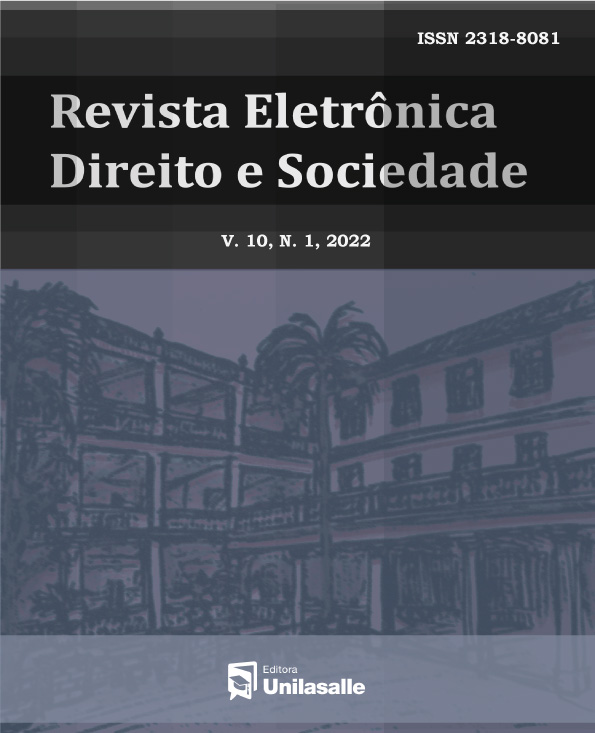“Oitenta tiros”: urbanismo militar, genocídio do povo negro e insustentabilidade ético-social
DOI:
https://doi.org/10.18316/redes.v10i1.6578Parole chiave:
Direito, Urbanismo militar, Violência, Genocídio negro, SustentabilidadeAbstract
O presente artigo analisa o impacto da perpetuação do regime escravocrata na população negra, especialmente através da violência e do urbanismo militar, assim como a sua dramática repercussão na efetividade de um paradigma sustentável. Atenta-se que após a abolição legal da escravatura, apesar do véu discursivo estabelecido pela ideologia da “democracia racial” e da inexistência de leis explícitas de segregação racial, houve uma perpetuação sistemática da opressão naturalizada, a partir de práticas sociais que posicionavam o negro como destinatário típico do sistema de justiça criminal e da letalidade policial. A partir de revisão bibliográfica específica, assevera-se que, desde então, o corpo negro foi edificado como o inimigo a ser criminalizado e eliminado no espaço social brasileiro, sobretudo pelo controle militar e pelo manejo de estratégias violentas. Por conseguinte, constata-se a construção de espaços anônimos em que as vidas negras são “matáveis” a partir do racismo como tecnologia de biopoder e a consequente insustentabilidade dessa realidade.Downloads
Pubblicato
Fascicolo
Sezione
Licenza
Autores que submetem seus manuscritos para serem publicados na Revista REDES concordam com os seguintes termos:
Os autores declaram ter ciência de que mantém os direitos autorais concedendo à REDES o direito à publicação.
Os autores declaram ter ciência de que o trabalho submetido será licenciado sob a Licença Creative Commons atribuição não-comercial que permite o compartilhamento do artigo com reconhecimento da autoria e publicação nesta revista.
Os autores declaram ter ciência que em virtude de os artigos publicados nesta revista tem acesso público e gratuito.
Os autores declaram, sob as penas da lei, que o texto é inédito e original e que têm ciência de que identificada a existência de plágio, os autores plagiados serão informados – para querendo, tomarem as medidas legais nas esferas cível e criminal – e, os autores do plágio terão seu acesso à revista bloqueado.
Os autores declaram que – em caso de coautoria – todos contribuíram significativamente para a pesquisa.
Os autores obrigam-se a fornecer retratações e (ou) correções de erros em caso de eventual detecção.
Os autores obrigam-se a não publicar o texto submetido a REDES em outra Revista eletrônica (ou não).

A Revista Eletrônica Direito e Sociedade - REDES - está licenciado com uma Licença Creative Commons Atribuição-NãoComercial 4.0 Internacional.
Baseado no trabalho disponível em http://revistas.unilasalle.edu.br/index.php/redes/about/submissions#copyrightNotice.
Podem estar disponíveis autorizações adicionais às concedidas no âmbito desta licença em http://creativecommons.org/.

